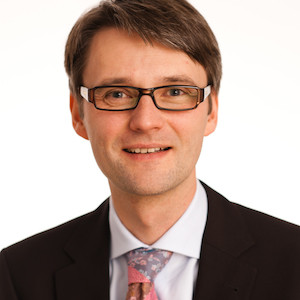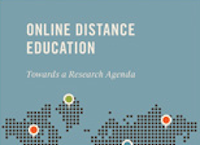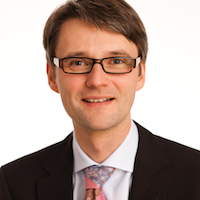Exclusive Interview with Olaf Zawacki-Richter, University of Oldenburg, Germany

Dr. Olaf Zawacki Richter, Professor of Educational Technology at the University of Oldenburg (Germany)
Dr. Saba: In recent years, you have made major contributions to our understanding of the status of research in distance education. How did you become interested in distance education? What attracted you to the field?
Dr. Zawacki-Richter: I was appointed at the Center for Distance Education (University of Oldenburg, Germany) in 1998. This was my first position at a university after my studies. At this time we developed the Master of Distance Education program together with the University of Maryland University College (UMUC) in the USA. From the beginning, this program was delivered entirely online and I had the opportunity to support experts, pioneers of our field of distance education, like Otto Peters and Börje Holmberg, building their courses and teaching online. This was an extremely exciting time and it was great to work in this new and emerging field of online distance education.
I remember very well a faculty meeting that we held in Frankfurt in 1999 where I had a very good discussion with Professor Otto Peters from the FernUniversity in Hagen about the development of online programs. After that I had the honor to have Otto Peters as the supervisor for my Ph.D. thesis. I was his last doctoral student. He gave me a solid understanding and background of the history and development of distance education, which is the basis of online/e-learning. I think it is very important to build upon previous research and the practical experiences of the last 50 (or even 150?) years so that we do not re-invent the wheel when we design and implement “new” e-learning formats.
When I became Professor in 2008 I thought it would be helpful to have a sort of roadmap for my own research. So I carried out a Delphi study to develop a validated framework of research areas in distance education. This was the beginning of a whole series of studies to explore the field of distance education research.
Dr. Saba: You have co-edited, and just published, a major book about research in online distance education. What was the impetus behind organizing this project? What are some of the major areas that are discussed in this book?
Dr. Zawacki-Richter: Yes, together with my colleague Terry Anderson from Athabasca University, I just published the book Online Distance Education: Towards a Research Agenda.
In our book we propose a framework of 15 research areas that are organized in three major strands of research, i.e. the micro-level (learning and teaching in distance education), meso-level (management, organization and technology) and meta-level (distance education systems and theories).
Distance education or online distance education is a relatively new research field that emerged from over 150 years of practice of distance teaching institutions. However, scholarly journals like Distance Education, Open Learning or the American Journal of Distance Education have been available for only about 30-40 years now . Research on DE has been subject to constant and sometimes harsh critique and was characterized as unsystematic, badly designed, atheoretical and predominantly descriptive. To carry out research in a systematic way, it is necessary to identify research gaps and priority areas that are based on a holistic structure of a research discipline. A research agenda is also important to communicate a clear-cut profile of a professional research discipline that might convince funding agencies to support research projects.
In our book we propose a framework of 15 research areas that are organized in three major strands of research, i.e. the  micro-level (learning and teaching in distance education), meso-level (management, organization and technology) and meta-level (distance education systems and theories). We invited leading academics worldwide to contribute to the book and asked them to review previous research for each area and to describe new research needs and priority areas.
micro-level (learning and teaching in distance education), meso-level (management, organization and technology) and meta-level (distance education systems and theories). We invited leading academics worldwide to contribute to the book and asked them to review previous research for each area and to describe new research needs and priority areas.
Dr. Zawacki-Richter: Who should read this book and how can we access it online and purchase a print copy?
As our salaries are paid by Canadian and German taxpayers, we enjoy academic freedom and both strongly believe that our work should be open to the public. So we are keen supporters of the open access movement, and the whole book can of course be downloaded as PDF for free at http://www.aupress.ca/index.php/books/120233. But you can also order a copy for $39,95 if you don’t want to print the 502 pages of this volume.
The book is intended as a reference and guide for researchers, distance educators and policymakers. The book will help researchers to answer the question how and where their individual research activities fit into the broader picture or the landscape of distance education research.
Dr. Saba: How do you see the future of research in distance education?
Dr. Zawacki-Richter: I hope with our work we can make a modest contribution to the further professionalization of our discipline and as importantly to increasing the quality, quantity and accessibility of global learning opportunities. The book should serve as an initial starting point for professional researchers, practitioners, academics, and graduate students who wish to help us unravel the challenges and unknowns while we collaboratively and continually create and recreate effective online learning systems. Finally, I hope that we can initiate and intensify a plethora of new research projects in online distance education and convince research associations with a clear research profile to make funds available.
Dr. Saba: What are some of the other major projects in which you are involved now?
Dr. Zawacki-Richter: I spent the last five years to do this basic research to explore the field of distance education research. But I also do practice oriented research and development projects. In 2011 the German Ministry of Education and Research has started an “Open University” program that is funded with 250 Million EUR to support campus-based higher education institutions and universities of applied sciences to develop a “lifelong learning profile” with programs for non-traditional students – all of them delivered in a blended learning format. We were able to get a massive grant of about 9 Million Euros to develop new programs in the areas of STEM with a focus on renewable energies, which is a very hot topic in Germany, and in the field of healthcare and nursing. All these BA and MA programs are delivered in a blended learning mode and will be offered and managed by our Center for Lifelong Learning (C3L) where I work as Professor for Educational Technology at the University of Oldenburg. The C3L is quite a big center with over 50 staff members, which I enjoy as we have the opportunity to really develop and implement things.
Another project was a study to investigate media usage patterns of students in higher education. Over 2,300 students participated in this study and we derived a media usage typology, which has implications for instructional design and media selection for our courses and the online learning environment at the C3L.
 Olaf Zawacki-Richter is professor of educational technology at the University of Oldenburg (Germany), Faculty of Education and Social Sciences, Center for Lifelong Learning. Between 2008 and 2010 Dr. Zawacki-Richter hold a fixed term professorship in educational technology at the FernUniversity in Hagen, Germany’s Open University. He is a member of the editorial board of the “International Review of Research in Open and Distance Learning” (IRRODL), the Australian journal “Distance Education”, the British journal “Open Learning” and the American “eLearn Magazine”. Olaf served as invited keynote speaker, chair and reviewer at many international conferences. In 2014/2015 Dr. Zawacki-Richter is a guest professor at the National Center of Educational Computing and Online Learning at King Saud University in Riadh (Saudi Arabia).
Olaf Zawacki-Richter is professor of educational technology at the University of Oldenburg (Germany), Faculty of Education and Social Sciences, Center for Lifelong Learning. Between 2008 and 2010 Dr. Zawacki-Richter hold a fixed term professorship in educational technology at the FernUniversity in Hagen, Germany’s Open University. He is a member of the editorial board of the “International Review of Research in Open and Distance Learning” (IRRODL), the Australian journal “Distance Education”, the British journal “Open Learning” and the American “eLearn Magazine”. Olaf served as invited keynote speaker, chair and reviewer at many international conferences. In 2014/2015 Dr. Zawacki-Richter is a guest professor at the National Center of Educational Computing and Online Learning at King Saud University in Riadh (Saudi Arabia).







